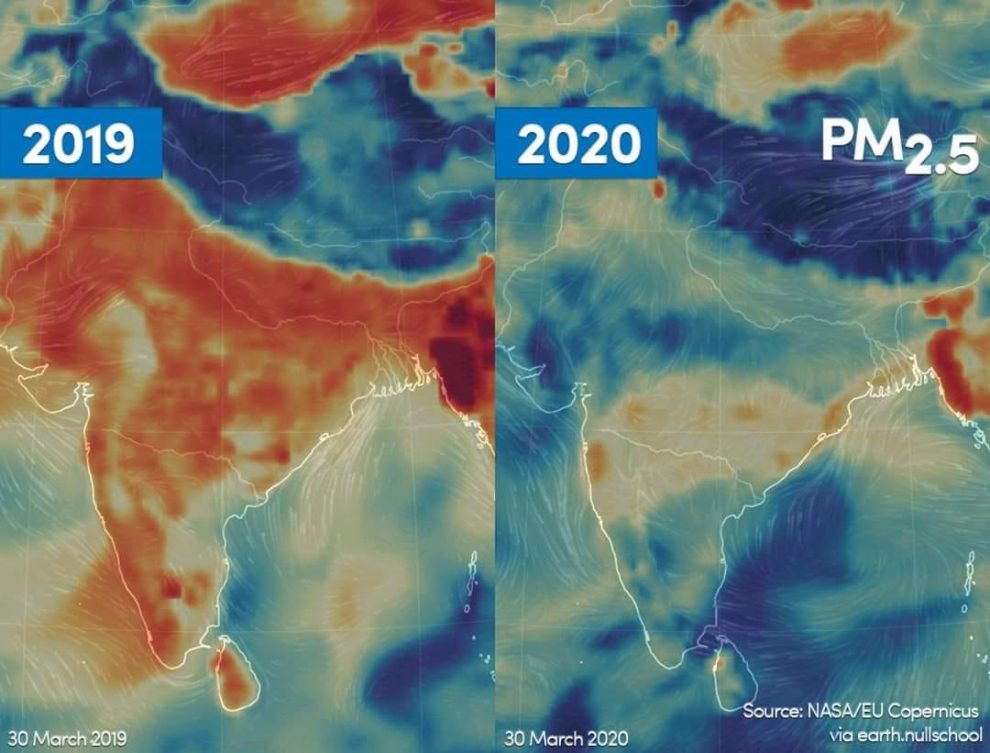According to data from Central Pollution Control Board, the air quality in India has improved by almost 60% as compared to the same period last year
Air Quality Index (AQI) in major Indian cities has improved drastically over the last two weeks, owing to the 21 day lockdown that the country has been put under. The air pollution has reduced to a great degree in all major Indian cities, including Delhi.
According to data from Central Pollution Control Board, the air quality in India (major cities) has improved by almost 60% as compared to the same period last year. In Smart Sustain’s recently published article, we highlighted the dangerous effects of air pollutants on human health. Respiratory illness, cardiac issues, and overall oxidative stress on cells increases due to long term exposure to air pollutants. Oxidative stress exposure on a regular basis is the breeding ground for various health problems in the long run. Now, in the midst of the coronavirus pandemic, despite it being an invisible threat in the form of a virus, a positive effect on the environment and consequently, on human well-being has been observed in the last few weeks.
This is like a dark cloud with a silver lining, creating hope for the future, with great breakthroughs in environment friendly technology. Technology that is environmentally friendly is not just for the environment, it is for the people too. There will be improved quality of lives as health and well-being improve. Longer lifespans are also by-products of adopting environmentally friendly technology.
Bengaluru’s AQI as on 3 April, 2020 stood at 87 with PM10 (particulate matter) being the primary pollutant. In the AQI index, a reading below 50 is good air quality, 51 to 100 is satisfactory, 101 to 200 is moderate, and 201 to 300 is poor. 301 to 400 is very poor air quality and above 401 is severe air quality. On 31 March, 2020, the AQI in certain parts of Delhi was 53, which is satisfactory. This is also a 70% reduction as compared to 176 which was the AQI reading on the same day last year in Delhi. The fall in AQI is due to the COVID-19 lockdown that has resulted in a steep decrease in vehicular emissions. Public transport has come to a standstill and cab aggregators have also tentatively stopped operations pending further instructions on the lockdown.
The reduction is AQI in major industrial cities in India is due to factories being closed. Cities like Ahmedabad, Kanpur, Vizag and others have witnessed a drastic reduction in AQI and therefore, an improved air quality.
Pic courtesy : Roxy Mathew Koll (@rocksea)














Add Comment